Navigation auf uzh.ch
Navigation auf uzh.ch
The URPP Newsletter is published electronically and informs about current projects, news, and events at the URPP Dynamics of Healthy Aging (DynAge).
If you are interested in receiving this newsletter, please subscribe here.

Editorial
The UN Decade of Healthy Aging 2021-2030: How the URPP DynAge Contributes
Reports
WHO Baseline Report for the Decade of Healthy Aging
University of Zurich Healthy Longevity Innovation Cluster
Recharge Project
COVID-19, Well-Being and Loneliness in Swiss Older Adults: The Role of Social Relationships During Lockdown
Spotlight
Overview of the New URPP DynAge Research Groups
Motivation and Emotion Group: Personal Goal Pursuit and Its Consequences on Well-Being, Health, and Performance
Multimodal Data Integration Group: Augmenting Research Data Sets for Further Scientific Discoveries
Law and Ethics Group: Addressing Legal and Ethical Challenges of Health-Related Big Data Research
News
Successfully Defended Dissertations
New URPP DynAge Staff
Prizes and Awards
Events
Upcoming Events
Recent Events
Research Exchange
The UN Decade of Healthy Aging 2021-2030: How the URPP DynAge Contributes
At the core of the UN Decade of Healthy Aging stands a conceptual healthy aging model that was developed at UZH. Originally termed the “functional Quality of Life (fQOL)” model, it emphasizes the complexity and context dependency of ways that exist and can be improved to stabilize meaningful activities and health until extreme old age, with and without diseases. The concept addresses the simultaneous development of increasing longevity, increasing chronic multimorbidity, increasingly high levels of functionality, increasing heterogeneity, and increasing awareness of context-dependency of health and well-being in aging communities and individuals. However, to improve healthy aging here in Switzerland and worldwide, multiple gaps have to be overcome.
The evidence gap: Healthy aging is a lifelong process, and one that affects many dimensions within and around individuals. Thus, the combination and integration of longitudinal multi-domain and multi-scale data are required to capture it. In the words of the World Health Organization (WHO), “Longitudinal studies not only deepen our understanding of the changes associated with ageing but have also provided opportunities to evaluate the impact of policy reforms”. In this regard, the URPP DynAge continues to contribute methods and infrastructures, as well as conceptual developments to improve the understanding of healthy aging dynamics. Despite being more difficult during these challenging times, important efforts have been made by URPP DynAge groups to involve all older adults, including those who are challenging to reach, such as individuals with dementia or persons over the ages of 70, 80, 90, and even 100. Critically, URPP DynAge members work together to develop innovative ways to gather information on essential aspects of real-life activities and quality of life in aging research to complement experimental and other cross-sectional studies. At an international level, the URPP DynAge supports the WHO in coordinating a global network of research centers dedicated to the decade.
The complexity gap: The pioneer of aging research and UZH honorary doctoral degree holder Prof. Dr. Warner Schaie in 1993 (American Psychologist, 48(1), 49-51) wrote “Describing sample characteristics by large age groupings (e.g., under/over age 65) is generally inappropriate. Samples designated as old can vary considerably from one another in age. Old may be anyone over 60 or 65, including subjects in their 80s or 90s. Combining all subjects above age 65, for example, presumes a unifying feature of the "old" group, for which there is no empirical support. Most research on adulthood shows that differences between those in their 60s and those in their 80s are far greater than those between 20- and 60-year-olds.” In fact, objectifying the differences and the complexities of longevity does two things: It provides an evidence-base for innovative differentiated and context-aware interventions and it contributes to an unbiased image of aging. In WHO words (2020) “With comprehensive data on each domain, only then can we fully track progress to optimize functional ability during the Decade of Healthy Ageing.” In this context, the URPP DynAge works with researchers, the UZH Innovation Hub, and the WHO to ensure that the complexities and the heterogeneity of longevity and aging are appropriately documented and reported. What is more, by finding innovative ways of providing access to high-density multiscale data from the levels of brains to environments for meta-analyses, age-related inequalities in knowledge about health are minimized.
The innovation gap: With data gaps on the complexity of longevity being filled, we have increasingly better evidence to develop innovative, context- and situation-aware solutions to monitor and improve healthy aging. The URPP DynAge groups have developed multiple prototypes of such solutions that are being used worldwide, such as the “uTrail” healthy aging monitoring device, featured in the new WHO Baseline Report (see the next section for more details), or digital education tools. Over the next years, and together with its international partners, the URPP DynAge will invest in establishing accelerator pipelines to strengthen the alignment between basic complexity-inclusive healthy aging research, prototyping, and implementing solutions on a larger scale.
Overall, the URPP DynAge has developed the conceptual and empirical bases for a new era of healthy aging research and innovation and looks forward to continuing its leadership through the coming decade. We have expanded the disciplinary range within the URPP DynAge and look forward to more strongly include regulatory, ethical, economical, and data science perspectives on healthy aging, as well as continuing to establish a research ecosystem that makes optimal and sustainable use of research resources.
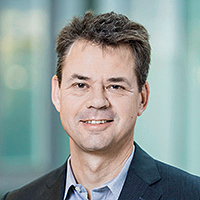 Prof. Dr. Mike Martin (Co-Director, URPP DynAge)
Prof. Dr. Mike Martin (Co-Director, URPP DynAge)
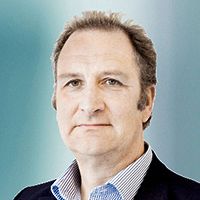 Prof. Dr. Lutz Jäncke (Co-Director, URPP DynAge)
Prof. Dr. Lutz Jäncke (Co-Director, URPP DynAge)
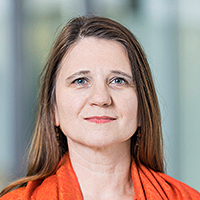 Prof. Dr. Alexandra M. Freund (Deputy Director, URPP DynAge)
Prof. Dr. Alexandra M. Freund (Deputy Director, URPP DynAge)
WHO Baseline Report for the Decade of Healthy Aging
On December 17th, 2020, the World Health Organization (WHO) published its new Baseline Report for the Decade of Healthy Aging (2021-2030). The aim and content of the report is manifold. It outlines the WHO’s definition and operationalization of healthy aging, that is the interaction of all person features that represent individual intrinsic capacity and the environment, resulting in a person’s functional ability, in the moment and over time. It also describes the current global baseline for healthy aging markers in 2020, and illustrates progress and scenarios for improvement until 2030. What is more, it lists the actions needed to speed up improvements for the lives of older individuals worldwide, and how older people themselves, as well as other stakeholders, can come together to jointly maintain (where possible) and improve (where necessary) functional ability.
The report highlights the need to improve the availability of globally comparable, non-disease focused real-life longitudinal data on older adults’ intrinsic capacity, environments and functional ability to better understand healthy aging dynamics. As stated in the report (p. xi), what is needed is
The report also features the URPP DynAge’s real-time collection of data on functional ability within the MOASIS project (“Mobility, Activity, and Social Interactions Study”; for more information see here) as one of the national case studies that highlight future pathways to address data gaps related to global healthy aging.
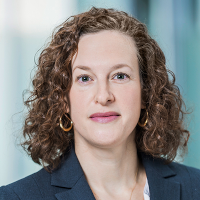 Dr. Christina Röcke (Deputy Director, URPP DynAge)
Dr. Christina Röcke (Deputy Director, URPP DynAge)
 Prof. Dr. Mike Martin (Co-Director, URPP DynAge)
Prof. Dr. Mike Martin (Co-Director, URPP DynAge)
University of Zurich Healthy Longevity Innovation Cluster
The University of Zurich (UZH) Innovation Hub is the main platform for the development of new ideas, inventions, and entrepreneurship at UZH. Basic research serves as the ideal basis for discoveries and innovations and many successful inventions at UZH lead to new products that benefit society. Within the UZH Innovation Hub, strategic innovation clusters are formed around themes with especially high innovation potential. Each cluster is based on the opportunities of a critical mass of highly original researchers, interdisciplinary collaboration, a managed value chain from basic research to innovation, and growing market potentials. In addition to the three existing strategic theme clusters on Biomedicine and Life Sciences, Digitalization, and Space and Aviation, we are excited to announce that a new cluster on Healthy Longevity was established at the end of 2020 (Cluster Head: Prof. Dr. Mike Martin).
The overarching goal of healthy longevity research and innovation at the University of Zurich is to understand and foster the development and maintenance of functional ability and quality of life in older age. As the current coordinator of the World Health Organization (WHO) Collaborating Center Plus Network for Healthy Ageing, the University of Zurich, with its URPP DynAge and Center for Gerontology, is in a unique position to identify current and future societal challenges and help set the international research and innovation agenda in the field of healthy longevity for years to come. What is more, with the WHO declaring 2021-2030 as the Decade of Healthy Aging, there has never been a better time to promote healthy longevity research and innovation and UZH is committed to further strengthening its position as a world leader in this area.
To help expand and kickoff this new cluster, we are currently organizing the 1st Annual UZH Healthy Longevity Innovation Symposium in conjunction with the UZH Innovation Hub and UZH Office of International Relations. It is planned to take place June 24-25, 2021 in virtual form and will be followed by a workshop for UZH researchers who are interested in learning more about how to build upon their research to strengthen its societal impact.
 Prof. Dr. Mike Martin (Co-Director, URPP DynAge)
Prof. Dr. Mike Martin (Co-Director, URPP DynAge)
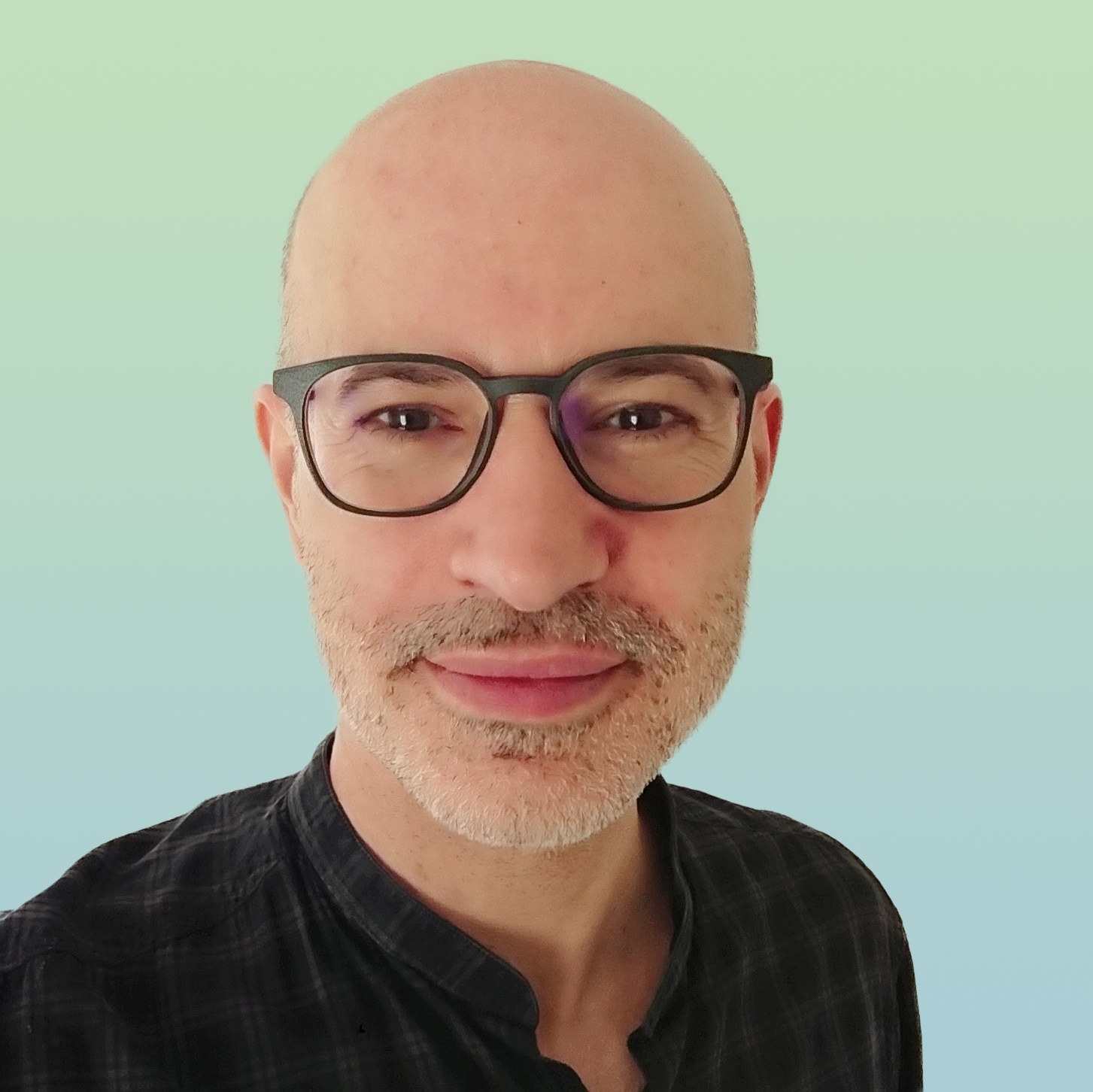 Dr. Marc Grosjean (Scientific Project Developer and Manager)
Dr. Marc Grosjean (Scientific Project Developer and Manager)
Recharge Project
One of the widely held beliefs about aging is that older adults are more easily exhausted, need more breaks to recover, and generally have less energy compared to younger adults. We – Dr. Brian B. Cardini and Prof. Dr. Alexandra M. Freund – set out to investigate if this belief is based in reality. To this purpose, we asked 276 adults aged between 20 and 92 years how much energy they have available for the physically, cognitively, emotionally, and socially demanding activities they pursue in their everyday lives. Interestingly, the subjectively available energy for these activities did not decrease but instead increased with age for mental, social, and emotional activities. The subjective energy for physical activities was unrelated to age.
Further exploring how fast younger and older adults feel exhausted when actually engaging in physical exercise, and how long it takes them to recover, we asked 147 adults aged between 18 and 86 years to engage in a high-intensity 20 minutes workout and a subsequent 20 minutes relaxation period in our laboratory. During the workout and the relaxation phase, we asked participants repeatedly how exhausted and recovered they felt. We found that older adults feel exhausted a bit faster during the workout, but they do not differ from younger or middle-aged adults in their exhaustion at the end of the exercise period. Moreover, they recovered just as fast as younger and middle-aged adults did.
Thus, taken together, these studies show that the widely held belief that older adults have less energy, suffer from more exhaustion, and need more time to recover appears to be a misconception. In a follow-up study that has just completed data-collection, we asked young, middle-aged, and older adults to report for 30 days how exhausted and recovered they felt throughout their days. Stay tuned for a report of the results of this study.
 Prof. Dr. Alexandra M. Freund (Deputy Director, URPP DynAge)
Prof. Dr. Alexandra M. Freund (Deputy Director, URPP DynAge)
COVID-19, Well-Being and Loneliness in Swiss Older Adults: The Role of Social Relationships During Lockdown
During the COVID-19 pandemic and associated restrictions during lockdown, individuals have had to adjust their social habits to follow the recommendations set by governments and reduce their risk of getting infected and spreading COVID-19. Older adults are considered especially at risk of severe outcomes of COVID-19 infection and warned to stay home if possible and avoid social contacts with anyone outside of their household. For many, that means a shift in their communication habits, potentially changing from face-to-face to telephone or digital communication.
In 2019, we conducted a study on older adults’ daily communication. We asked participants to document their daily interactions to find out more about their communication habits. When the national lockdown was announced in Switzerland in March 2020, we contacted the same participants again and asked them to fill in a weekly questionnaire on their communication habits, positive and negative affect, and loneliness, to investigate how their well-being had changed during lockdown compared to 2019, and whether their communication habits had an effect on any possible changes.
We found that participants reported overall less positive affect, and more negative affect and loneliness during the first four weeks of the COVID-19 lockdown compared to 2019. The only factor that significantly impacted this change was older adults’ own satisfaction with their communication during the lockdown, that means, participants who succeeded in maintaining their own communication habits to a level they were satisfied with, experienced less reduction in positive – and a smaller increase in negative affect and loneliness. In addition, we found that affect and loneliness started to recover towards pre-lockdown levels over the four weeks. This suggests that participants were able to adjust to the lockdown measures over time.
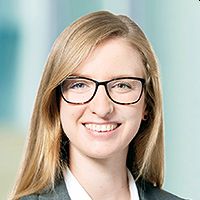 Dr. Birthe Macdonald (Postdoc, URPP DynAge)
Dr. Birthe Macdonald (Postdoc, URPP DynAge)
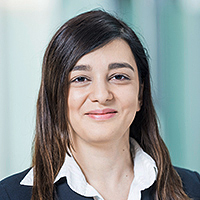 Prof. Dr. Gizem Hülür (School of Aging Studies, University of South Florida)
Prof. Dr. Gizem Hülür (School of Aging Studies, University of South Florida)
Overview of the New URPP DynAge Research Groups
In the third funding period of the URPP DynAge which began on January 1, 2021 and which will run thru 2024, we welcome several new members and new research groups to the URPP DynAge. These research groups are considered cross-cutting research groups, which complement the existing core research groups by addressing themes and challenges related to various aspects of healthy aging research across individual groups. In this short article, we briefly introduce these new groups, which will each be featured in the current and the next URPP DynAge research newsletter in greater detail in their own right.
Within the so-called content research areas, the new group is headed by Prof. Dr. Veronika Brandstätter and focuses on motivational and emotional processes related to healthy aging, both in individuals and at the dyadic level. Within the newly established area of cross-cutting research, we welcome groups focusing on (1) law and ethics (headed by Prof. Dr. Florent Thouvenin and PD Dr. Markus Christen), addressing implications from high-density data collection at the within-person level, (2) multimodal data integration (headed by Prof. Dr. Abraham Bernstein), (3) method development (headed by Prof. Dr. Nicolas Langer), (4) mobility analytics (headed by Prof. Dr. Robert Weibel), continuing the existing URPP DynAge collaboration with the Weibel GIScience group at the Department of Geography, as well as (5) a group focusing particularly on multi-scale healthy aging data management and valorization (headed by URPP DynAge directors and researchers Dr. Susan Mérillat, Prof. Dr. Mike Martin, and Dr. Christina Röcke).
Together, the new groups aim to build upon, and address challenges and opportunities that have been identified during the preceding eight years of activities of the URPP DynAge network, with the goal to move the healthy aging and longevity ecosystem into the next decade.
 Dr. Christina Röcke (Deputy Director, URPP DynAge)
Dr. Christina Röcke (Deputy Director, URPP DynAge)
Motivation and Emotion Group: Personal Goal Pursuit and Its Consequences on Well-Being, Health, and Performance
The Motivation and Emotion Group (Prof. Veronika Brandstätter, Dr. Katharina Bernecker, Charlotte Kukowski, M.Sc.) focuses on processes in personal goal pursuit and their downstream consequences on well-being, health, and performance. In different contexts (e.g., intimate relationships, leisure, sustainability), we look at self-regulatory processes involved in engagement in and disengagement from personal goals on the individual, dyadic, and collective levels. To this end, we use lab experiments and experience-sampling methods in cross-sectional and longitudinal designs as well as machine learning approaches. In the following, we will describe more concretely three of our current projects.
(1) PASEZ-MOT project: This project, which is part of the larger 10-year-longitudinal PASEZ-study „Impact of Stress on Relationship Development of Couples and Children: A Longitudinal Approach on Dyadic Development Across the Lifespan“ (PIs: Bodenmann, Bradbury, Brandstätter, Martin, Nussbeck), examines motivational predictors of close relationship functioning in couples of three age cohorts (i.e., 20-35 y., 40-55 y., 65-80 y.). Social interactions can be construed as goal-directed behavior. This theoretical perspective opens a wide avenue to the analysis of emotional, cognitive, and behavioral processes in intimate relationships. We focus on approach/avoidance (of positive/negative outcomes) as fundamental building blocks of human motivation and behavior. More specifically, approach/avoidance relationship goals (e.g., aiming for positive interactions vs. avoiding conflicts) are investigated with respect to their person-specific and situational antecedents as well as their consequences on relationship functioning.
(2) Hedonism project: So far, the literature on self-regulation has focused on how people can pursue long-term goals when these are in conflict with hedonic goals (e.g., not getting distracted from work by more pleasurable activities). This project looks at this conflict from the opposite side and examines how people can pursue their hedonic goals when these are in conflict with their long-term goals (e.g., not getting distracted by work when trying to relax). Hedonic goals describe people’s striving for pleasurable affective states (e.g., enjoyment, relaxation). The basic assumption is that conflict with a long-term goal makes it difficult to experience positive affective states. In investigating this assumption, person-specific and situational determinants of successful hedonic goal pursuit and consequences in the areas of well-being, health, and performance across the lifespan are considered.
(3) Self-regulation in collective goal-striving project: While cumulated everyday actions impact collective outcomes (e.g., climate change, the course of a pandemic), individuals often struggle to implement normatively correct behavior, even when their personal goals (e.g., environmental protection, health protection) are in line with these desired outcomes. Taking a self-regulatory perspective, we assume that behaviors in the service of collective goals require effortful self-regulation to overcome immediate needs or well-learned habits. While extant work addresses the intention-behavior gap in collective goal striving, research has not yet examined whether and how own and others’ self-regulatory struggle are associated with a preference for collective (e.g., policy) over individual regulation of behavior.
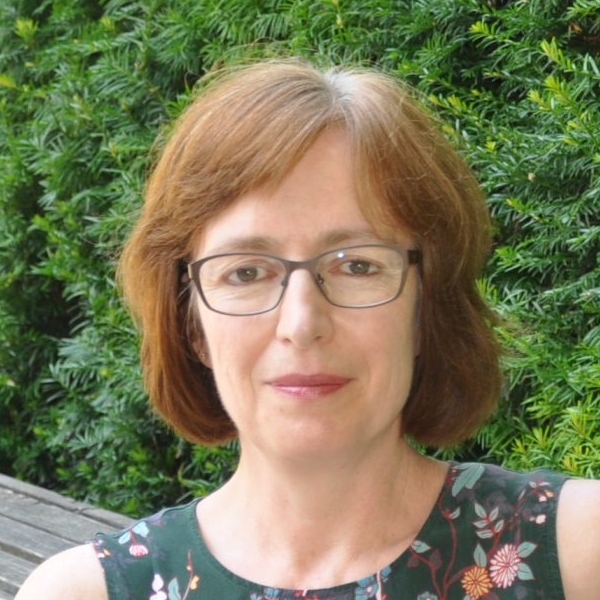 Prof. Dr. Veronika Brandstätter (Participating Professor, URPP DynAge)
Prof. Dr. Veronika Brandstätter (Participating Professor, URPP DynAge)
Multimodal Data Integration Group: Augmenting Research Data Sets for Further Scientific Discoveries
The advances in computation, storage, and especially sensing technologies over the recent years have increasingly opened doors to the acquisition of larger amounts of ever more various data. Most scientific disciplines and even many aspects of everyday life have been and continue to be profoundly impacted by this progress in information technology and, especially, artificial intelligence.
A modern wearable smart device, for example, is equipped with sufficient sensors and storage to monitor and record a plethora of attributes of its wearer, while modern medical diagnostic processes enable increasingly detailed – and data intensive – insights. The data generated by such means comes in formats as diverse as the mechanisms which generated them. It is, therefore, not always clear how such data needs to be combined in order to form a coherent picture. This is especially the case, when the data was not especially collected for a pre-defined purpose but rather obtained from sources not directly related to the research at hand. But even when data was collected with a clear goal, it is not necessarily clear how to (1) re-use it in a different context or (2) combine it with data from other sources to generate insights which may go beyond the scope of the original experiment.
The goal of this project is to investigate AI-based means to assist healthy aging scientists in their quest to find relevant data sets that can help them further validate and extend their findings. We will study methods that given a generic data query (e.g., “What is the interaction between white matter and X?”) and possibly an existing data set that scientists currently use for the data query at hand, provides a ranked list of potential additional data sets that scientists could use in their research. Related data can be multimodal, including structured data files, natural text, videos, spatial coordinates, or MRI-based images. Moreover, we will investigate methods that guide scientists through the endeavor of integrating the found, relevant data sets with their own data. This will help answer new questions that emerge from an integrated research dataspace. We plan to use knowledge graphs (KGs) to organize the multimodal data. KGs can be viewed as networks that connect entities (the nodes of the network) by relations (the edges). They facilitate the dynamic integration of heterogenous and distributed data sources. The KGs’ structure and explicit semantics will allow us to classify ability- and activity-related observations from healthy aging research. Our data integration methods will consider KG-based data imputation (predicting missing values), entity classification (deciding what category a given entity has), and link prediction (finding new relationships between entities).
Different from conventional recommendation tasks that focus on relevance (e.g., when recommending movies or books), we also need to consider data quality and compatibility issues – a task which becomes more challenging with data sets in different scales, schemas, and modalities. As it is often the case that data sets were collected following different metric protocols and preprocessed with different pipelines, even the same value of the same metric in different data sets could have different meanings. Finally, to be able to leverage the knowledge contained in KGs for these tasks, we need to extract the structural and contextual information concealed in the original data sets and make it explicit in a graph structure.
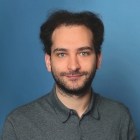 Dr. Luca Rossetto (Postdoc, UZH)
Dr. Luca Rossetto (Postdoc, UZH)
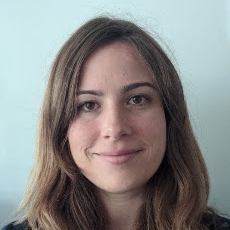 Cristina Sarasua (Researcher, UZH)
Cristina Sarasua (Researcher, UZH)
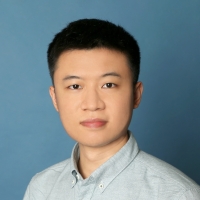 Ruijie Wang, M.Sc. (Doctoral Student, URPP DynAge)
Ruijie Wang, M.Sc. (Doctoral Student, URPP DynAge)
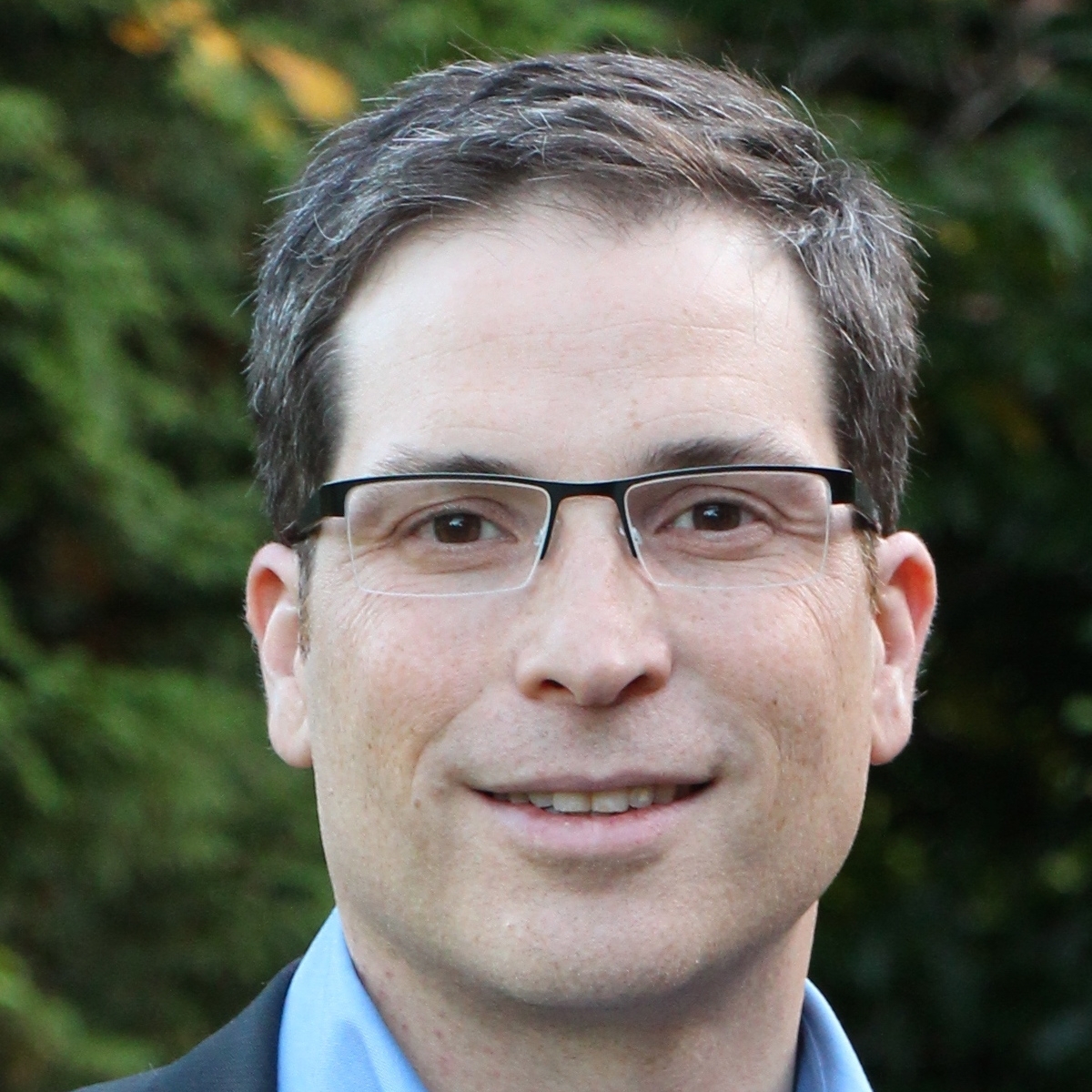 Prof. Dr. Abraham Bernstein (Participating Professor, URPP DynAge)
Prof. Dr. Abraham Bernstein (Participating Professor, URPP DynAge)
Law and Ethics Group: Addressing Legal and Ethical Issues of Health-Related Big Data Research
The research approach and methodology of the URPP DynAge are primarily based on longitudinal studies focusing on real life data of participants by using portable data collection devices and high-density multiscale health development data. This approach is very promising – but it causes major challenges for ensuring compliance with applicable law, mainly with regard to data protection law. In addition, the project raises ethical issues that go beyond data protection law. For example, fair and transparent data management is key to motivate research subjects to contribute to this research. In addition, issues like ensuring informed consent in data-rich research or protecting the contextual integrity of data for preventing misuse need appropriate ethics research. The aim of the newly formed Law and Ethics Group of the URPP DynAge is to tackle those legal and ethical challenges.
The Group unifies competences from two UZH units: On the one hand, The Center for Information Technology, Society, and Law (ITSL) will provide support for the research activities of the URPP DynAge in two streams: (1) We will analyze the existing and elaborate novel approaches to ensure compliance of the different research activities of the URPP DynAge with the requirements of national and cantonal data protection law. (2) We will conduct legal research in two different but related directions: (i) We will analyze the current framework of data protection laws applicable to scientific research conducted at Swiss Universities and develop novel approaches for applying the principles of data protection law, the requirements for the lawfulness of data processing and the granting of data subject rights (e.g. the right of access) in a research environment. By doing so, we will mainly focus on research exemptions and the underlying policies, e.g., the ones contained in the GDPR, and elaborate on how to apply this approach under the applicable national and cantonal data protection laws in Switzerland. (ii) We will develop a novel approach to data protection law in the course of the ITSL’s research project “Rethink Privacy!”. This project advocates for shifting the perspective of data protection law from the current focus on the all-encompassing regulation of the process of data processing to a novel approach that will focus on ensuring privacy and preventing harms caused to individuals through the processing of their personal data (e.g., discrimination or manipulation). This novel approach is particularly promising for research based on personal data as such research can most often be organized in a privacy-friendly way and hardly ever causes harms to individuals.
On the other hand, the Digital Ethics Lab of the UZH Digital Society Initiative, located at the Institute of Biomedical Ethics and History of Medicine, will provide support for the research activities of the URPP DynAge in two streams: (1) We will deepen our understanding of normative issues that go along with data-rich research in the setting of the URPP DynAge. This includes further analyzing core values affected by the research such as fairness (e.g., in the context of data exchange relations) or contextual integrity of data. We will support research that concerns dynamic informed consent suitable for the research setting of the URPP DynAge. (2) We will provide knowledge in empirical ethics to the psychological research teams for setting up experiments that allow further investigating, how the understanding of ethical values and principles by the participants are influenced by contributing to data-rich research.
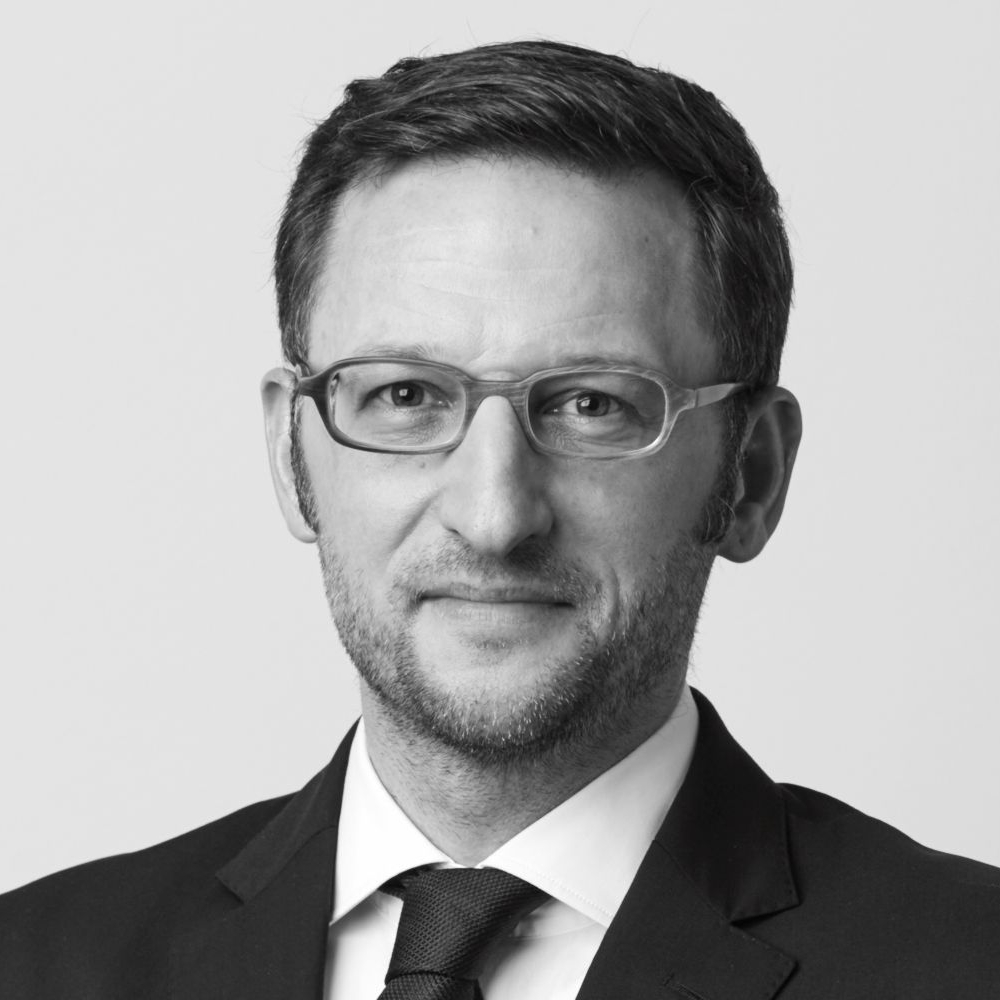 Prof. Dr. Florent Thouvenin (Participating Professor, URPP DynAge)
Prof. Dr. Florent Thouvenin (Participating Professor, URPP DynAge)
 PD Dr. Markus Christen (Head of Research Group, URPP DynAge)
PD Dr. Markus Christen (Head of Research Group, URPP DynAge)
Successfully Defended Dissertations
We congratulate Dr. Walter Bierbauer, Dr. Stefanie Lindner, Dr. Tabea Meier, and Dr. Hannah Süss on their accomplishment and wish them all the best for their future endeavors!
Dr. Walter Bierbauer
Walter Bierbauer defended his dissertation with the title "Theory-Based Determinants of Health Behaviors Within Individuals: Dynamics in Self-Regulation" on January 27th, 2021 (main supervisor: Prof. Dr. Urte Scholz). He is now working as a postdoc at the URPP DynAge on motivational and volitional self-regulation processes and behavioral strategies to foster health behavior change.
Dr. Stefanie Lindner
Stefanie Lindner defended her dissertation with the title "Healthy Aging and Big Five Personality Processes in Adulthood and Old Age" on December 3rd, 2020 (main supervisors: Prof. Dr. Mathias Allemand and Prof. Dr. Mike Martin). She is now pursuing training as a psychotherapist.
Dr. Tabea Meier
Tabea Meier defended her dissertation with the title "Language Use and Socio-Affective Functioning in Adulthood: Adaptation and Functionality of Individual and Relational Language Markers in Different Interaction Contexts" on November 23rd, 2020 (main supervisors: Dr. Andrea B. Horn and Prof. Dr. Mike Martin). She is now working as a postdoc at the URRP on socio-affective processes across the lifespan and, starting in August, she will join the lab of Prof. Claudia Haase at Northwestern University (USA) on an SNSF Early Postdoc.Mobility fellowship (see Prizes and Awards section below for more details).
Dr. Hannah Süss
Hannah Süss defended her dissertation with the title "Resilience in Perimenopausal Women" on December 17th, 2020 (main supervisor: Prof. Dr. Ulrike Ehlert). She is now working as a psychologist at the Psychiatric University Hospital Zurich.
New URPP DynAge Staff
We extend a warm welcome to our new colleagues Dr. Katharina Bernecker, Pascal Deschwanden, M.Sc., Charlotte Kukowski, M.Sc., Dr. Minxia Luo, Dawid Strzelczyk, M.Sc., and Ruijie Wang, M.Sc.!
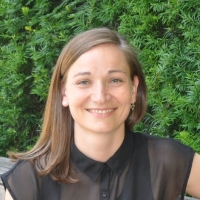
Dr. Katharina Bernecker
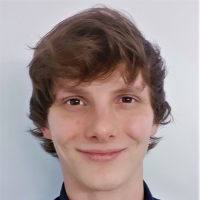
Pascal Deschwanden, M.Sc.
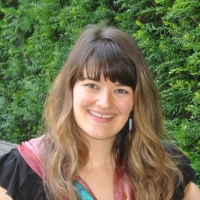
Charlotte A. Kukowski, M.Sc.

Dr. Minxia Luo
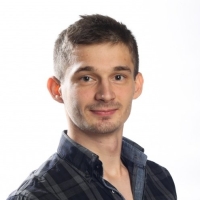
Dawid Strzelczyk, M.Sc.
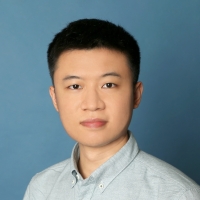
Ruijie Wang, M.Sc.
Prizes and Awards
We congratulate Dr. Tabea Meier on being recognized for her innovative research!
Dr. Tabea Meier
We are proud to announce that recent doctoral student and current postdoc Tabea Meier (URPP DynAge) was awarded a SNSF Early Postdoc.Mobility fellowship. These competitive fellowships are designed to support promising young researchers who wish to pursue an academic career in Switzerland by funding a research stay abroad. Tabea will use the fellowship to study emotional linkage in dyadic interaction across the lifespan with Prof. Dr. Claudia Haase (Human Development and Social Policy, and Psychology, Northwestern University, Evanston, IL, USA).
Upcoming Events
Apr. 14th, 2021
Kickoff Meeting for the 3rd Phase of the URRP DynAge in Virtual Form
Organized by Dr. Claudia Hagmayer (URPP DynAge)
June 20th – 23rd, 2021
Workshop on “Women in Big Data Retreat: Coding. Career. Community.” in Waltensburg/Vuorz
Organized by Dr. Jessica Oschwald (Roche Products Limited, UK, and formerly URPP DynAge), Tabea Meier, M.Sc. and Stefanie Lindner, M.Sc. (both URPP DynAge)
Jun. 21st – 23rd, 2021
MoHeaP 2020: Workshop on “Mobility, Health, and Place” in Virtual Form
Organized by Dr. Eun-Kyeong Kim and Prof. Dr. Robert Weibel (URPP DynAge and Department of Geography at the University of Zurich) as well as Dr. Christina Röcke (URPP DynAge)
Jun. 24th – 25th, 2021
1st Annual UZH Healthy Longevity Innovation Symposium in Virtual Form
Organized by Prof. Dr. Mike Martin and Dr. Marc Grosjean (both URPP DynAge) with the Innovation Hub and International Relations Office at the University of Zurich
Jun. 30th – Jul. 2nd, 2021
8th Conference of the Society for Ambulatory Assessment (SAA) in Virtual Form
Organized by the URPP DynAge
Sept., 2021
21st Zurich Gerontology Day 2021 in Zurich
Organized by the Center for Gerontology at the University of Zurich and the URPP DynAge
Oct. 28th – 30th, 2021
50th Motivational Psychology Colloquium (MPK) in Zurich
Organized by Prof. Dr. Veronika Brandstätter and Dr. Katharina Bernecker (both URPP DynAge) in conjunction with the “Institut für Selbstmanagement und Motivation Zürich”
Recent Events
Due to the COVID-19 pandemic, a number of planned events had to be cancelled or postponed. Photos from a selection (*) of recent events that were (co-)organized by the URPP DynAge can be found online here.
November, 2020
Virtual International Seminar Series on Semantic Analysis of Multi-Scale Health Dynamics
Organized by Prof. Dr. Mike Martin (URPP DynAge) and PD Dr. Harald Atmanspacher (Collegium Helveticum), with the support of Dr. Burcu Demiray (URPP DynAge)
Dr. Robert Moulder, Postdoc (virtual stay, mid January – mid May, 2021) – Focus on multi-scale activity data from MOASIS (Mobility, Activity and Social Interactions in the lives of healthy older adults Study).
The full list of URPP DynAge publications can be found online here.
Bartsch, L. M., & Oberauer, K. (2021). The effects of elaboration on working memory and long-term memory across age. Journal of Memory & Language, 118:104215.
Bierbauer, W., Scholz, U., Bermudez, T., Debeer, D., Coch, M., Fleisch-Silvestri, R., Nacht, C-A., Tschanz, H., Schmid, J-P., & Hermann, M. (2020). Improvements in exercise capacity of older adults during cardiac rehabilitation. European Journal of Preventive Cardiology, 27(16), 1747-1755.
Cardini, B. B., & Freund, A. M. (2020). Recovery from accumulated strain: the role of daily mood and opportunity costs during a vacation. Psychology & Health. Advance online publication. doi: 10.1080/08870446.2020.1809661
Charles, S., Röcke, C., Zadeh, R., Martin, M., Boker, S., & Scholz, U. (in press). Levering daily social experiences to motivate healthy aging. Journals of Gerontology: Psychological Sciences.
Horn, A. B., & Röcke, C. (2020). Aging dyads and health: New perspectives on interpersonal processes in aging. GeroPsych, 33(3), 117-123.
Lindner, S., Aschwanden, D., & Allemand, M. (2020). Personality processes. In V. Zeigler-Hill, & T. K. Shackelford (Eds.), Encyclopedia of personality and individual differences (pp. 3608-3613). Cham: Springer.
Macdonald, B., & Hülür, G. (2020). Internet adoption in older adults: Findings from the Health and Retirement Study. Cyberpsychology, Behavior, and Social Networking. Advance online publication. doi: 10.1089/cyber.2019.0736
Mc Gee, S. L., Maercker, A., Carr, A., & Thoma, M. V. (2020). "Some call it resilience": A profile of dynamic resilience-related factors in older adult survivors of childhood institutional adversity and maltreatment. Child Abuse & Neglect, 107:104565.
Meier, T., Boyd, R. L., Mehl, M. R., Milek, A., Pennebaker, J. W., Martin, M., Wolf, M., & Horn, A. B. (2021). (Not) lost in translation: Psychological adaptation occurs during speech translation. Social Psychological and Personality Science, 12(1), 131-142.
Stieger, M., Flückiger, C., Rüegger, D., Kowatsch, D., Roberts, B. W., & Allemand, M. (2021). Changing personality traits with the help of a digital personality change intervention. Proceedings of the National Academy of Sciences of the United States of America PNAS. Advance online publication. doi: 10.1073/pnas.2017548118
Süss, H., & Ehlert, U. (2020). Psychological resilience during the perimenopause. Maturitas, 131, 48-56.